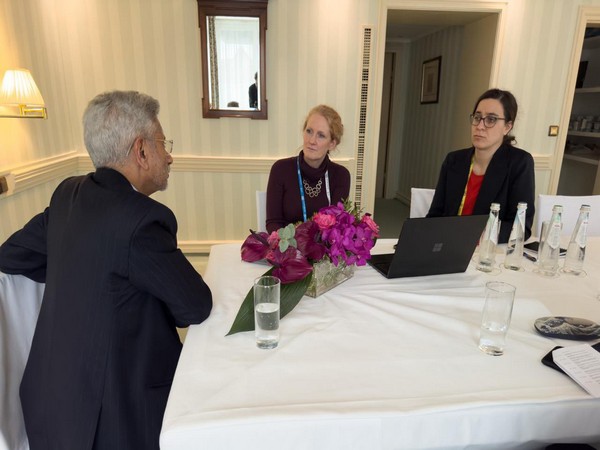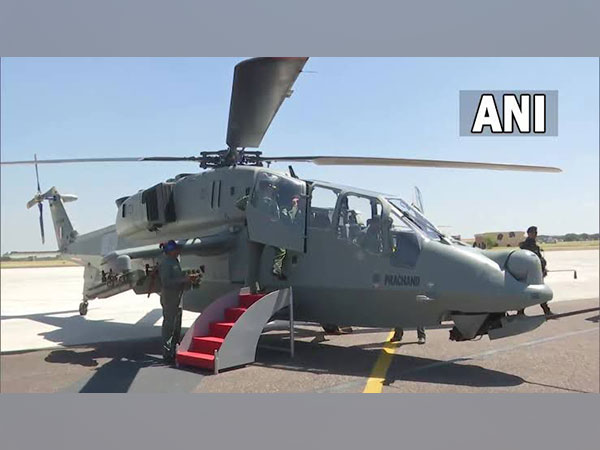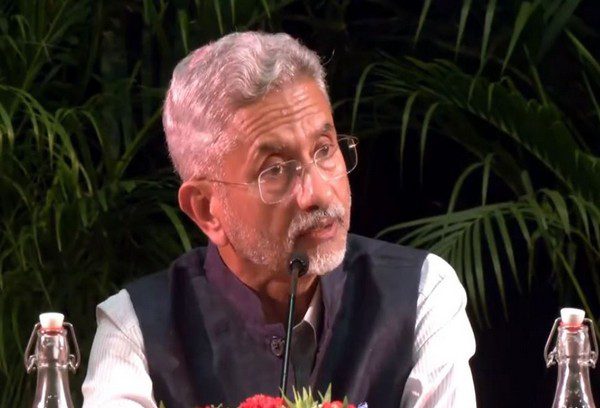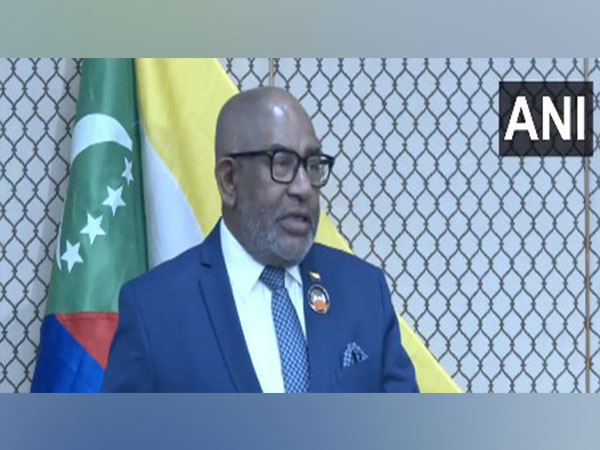In the shadow of the magnificent Himalayas, Pokhara, Nepal’s scenic paradise, welcomed a Sichuan Airlines flight from China in June, marking a momentous occasion for the city. The newly constructed international terminal at Pokhara’s airport, a project largely financed and executed by Chinese companies, had finally become operational. However, beneath the surface of this grand opening lay a complex and unsettling reality – one that highlighted China’s controversial infrastructure influence and its geopolitical rivalry with India, The New York Times reported.
For over four decades, Nepal had aspired to establish an international airport in Pokhara, envisioning it as a catalyst for transforming the city into a global tourist destination. Unfortunately, the project had languished due to political instability, bureaucratic challenges, and financial difficulties. That was until China stepped in to fill the void, furthering its quest to create an alternative sphere of influence, challenging American dominance on the global stage. Nepal, located south of China and with close ties to India, represented an enticing geopolitical prospect.
The airport’s construction was a part of China’s grand ambitions, aligning with President Xi Jinping’s signature infrastructure campaign, the Belt and Road Initiative (BRI), which promised substantial investments in infrastructure projects worldwide. However, Nepal discreetly rejected the notion that the Pokhara airport was a part of the initiative. This discrepancy propelled the airport into a diplomatic tug-of-war between China and India, according to The New York Times.
While dozens of countries, including Nepal, convened in Beijing for the 10th-anniversary celebration of the Belt and Road Initiative, China’s overseas development endeavors were under scrutiny for their exorbitant costs and poor-quality construction. The Pokhara airport exemplified the perils that came with importing China’s infrastructure-at-any-cost development model, disproportionately benefiting Chinese firms at the expense of the borrowing nation.
China CAMC Engineering, the construction division of state-owned conglomerate Sinomach, played a pivotal role in the Pokhara airport project. It imported building materials and machinery from China, and the airport itself was brimming with Chinese-made security and industrial technology. Despite China’s claims about the project’s quality, an investigation by The New York Times revealed an unsettling narrative.
Multiple individuals involved in the project and a thorough examination of thousands of documents indicated that China CAMC Engineering had consistently dictated terms to maximize profits and protect its interests. Simultaneously, it systematically dismantled Nepali oversight. As a consequence, Nepal found itself entangled in significant debt to Chinese creditors without the expected influx of passengers to repay the loans.
Before construction commenced, Nepal’s finance minister had signed a memorandum of understanding supporting CAMC’s proposal in 2011, even before an official bidding process had started. The Chinese loan agreement exclusively allowed Chinese firms to bid for the project. CAMC initially submitted a bid for USD 305 million, nearly double Nepal’s cost estimate for the airport. This drew criticism from Nepali politicians, who accused the process of being rigged and the price inflated. Following the outcry, CAMC lowered its bid to USD 216 million, reducing the cost by approximately 30 percent.
In 2016, China and Nepal formalised a 20-year agreement for the project, with a quarter of the funding provided as an interest-free loan. Nepal intended to borrow the remainder from China’s Export-Import Bank at a 2 per cent interest rate, with repayment scheduled to begin in 2026.
As construction progressed, glaring issues came to light. The Civil Aviation Authority of Nepal was responsible for overseeing the Chinese contractor, but the lack of experienced personnel, combined with the inadequate allocation of funds for consultants, hampered the project. Initially earmarked at USD 2.8 million, the budget for hiring consultants to ensure CAMC’s compliance with international construction standards was eventually reduced to a mere USD 10,000, diverting funds elsewhere.
This lack of oversight allowed CAMC to initiate work before consultants were in place and perform construction work that did not meet international standards. Key components, such as soil density tests for the runway’s foundation, were omitted, jeopardising the runway’s future stability. Other oversights included the airport’s drainage system design, ignoring historical rainfall data and sloping topography, increasing the risk of flooding. The quality of Chinese-made building materials and the identity of vendors were inadequately documented, contravening the terms of CAMC’s contract with Nepal, as reported by The New York Times.
While consulting efforts were expected to oversee CAMC’s work, the Chinese company managed to sidestep consultants and interact directly with Nepali officials who had limited construction experience. Any efforts to seek additional information or documentation were often fruitless.
China’s Export-Import Bank had commissioned China IPPR International Engineering, a consulting firm, to ensure the quality, safety, and schedule of the project and to confirm Nepal’s satisfaction with CAMC’s work. However, the situation grew murkier in 2019 when CAMC acquired IPPR, turning it from a sister company into a direct subsidiary. IPPR’s fees came from Nepal as part of its loan from the Chinese bank.
Chinese engineers working on the project claimed that they were instructed not to scrutinise CAMC’s work closely, with a focus on delivering an airport rather than a “chicken farm.” Furthermore, allegations surfaced that documents related to the qualifications of IPPR’s workers in Pokhara had been falsified. In some cases, even employee credentials were manipulated. Such practices revealed a disconcerting disregard for transparency and accountability.
CAMC and IPPR remained unresponsive to inquiries and requests for comments about their involvement in the Pokhara airport project.
In a troubling incident, Zhu Zhanfeng, the project site manager for the contractor, boasted about the airport’s adherence to the “Chinese standard,” the New York Times reported.
Yet, what went unmentioned was a tragic incident involving Zhu from three years earlier. In 2019, Zhu struck and killed a pedestrian in Pokhara following a night of drinking. Police suspected he was intoxicated when he hit Deu Kumar Tamang, who was walking in a crosswalk. Tamang’s tragic death led to a contentious compensation offer from CAMC, starting at 1 million Nepali rupees (approximately USD 7,500). When the family declined, CAMC offered to double the payment and provide space for a coffee shop within the new airport. Eventually, the family accepted the offer, with the condition that payment would only be made after Zhu’s release from prison.
However, allegations arose that CAMC sought to downplay the incident by arguing that Tamang had been drinking and had contributed to the accident. The case went to trial, with Zhu being found guilty of a “traffic death” and sentenced to four months in prison. This sentence, considered lenient by many, was further reduced to time already served, causing outrage among the victim’s family. Nabin Tamang, Deu Kumar Tamang’s brother, expressed disappointment in the justice system, perceiving it as prioritizing the project’s progress over seeking justice.
The opening of the Pokhara airport in January 2023 was marred by geopolitical tensions. The Chinese Embassy in Nepal declared the airport as “the flagship project” of China and Nepal’s Belt and Road Initiative cooperation, despite its pre-existing status. This declaration ignited a diplomatic dispute, with India’s skepticism regarding the Chinese initiative further complicating the situation, according to The New York Times.
As Pokhara airport struggled to attract international flights, especially from Indian airlines, Nepal’s aspirations for the airport were put in jeopardy. Buddha Air, Nepal’s largest airline, had requested permits for flights to India but awaited approval from the Indian government. A feasibility study commissioned by CAMC had projected passenger numbers that would enable the airport to repay its loans from profits, but as of now, no international flights have commenced.
Nepali officials have reportedly requested that China convert the loan into a grant due to the airport’s financial challenges, a matter discussed during Prime Minister Pushpa Kamal Dahal’s visit to Beijing in late September. The joint statement issued by China and Nepal during the visit acknowledged the completion and operation of the Pokhara airport but made no mention of plans to waive the loan.
The construction of Nepal’s Pokhara airport, primarily funded and executed by Chinese companies, has raised concerns about the quality of work, the manipulation of oversight, and the burden of debt on Nepal. Additionally, the airport’s association with China’s Belt and Road Initiative has ignited diplomatic tensions with India, making it challenging for the airport to attract international flights.
The Pokhara airport serves as a stark example of the pitfalls associated with importing China’s infrastructure development model, highlighting concerns about financial sustainability and transparency, all while fueling geopolitical rivalries in the region, The New York Times reported. (ANI)
Read More: https://lokmarg.com/









